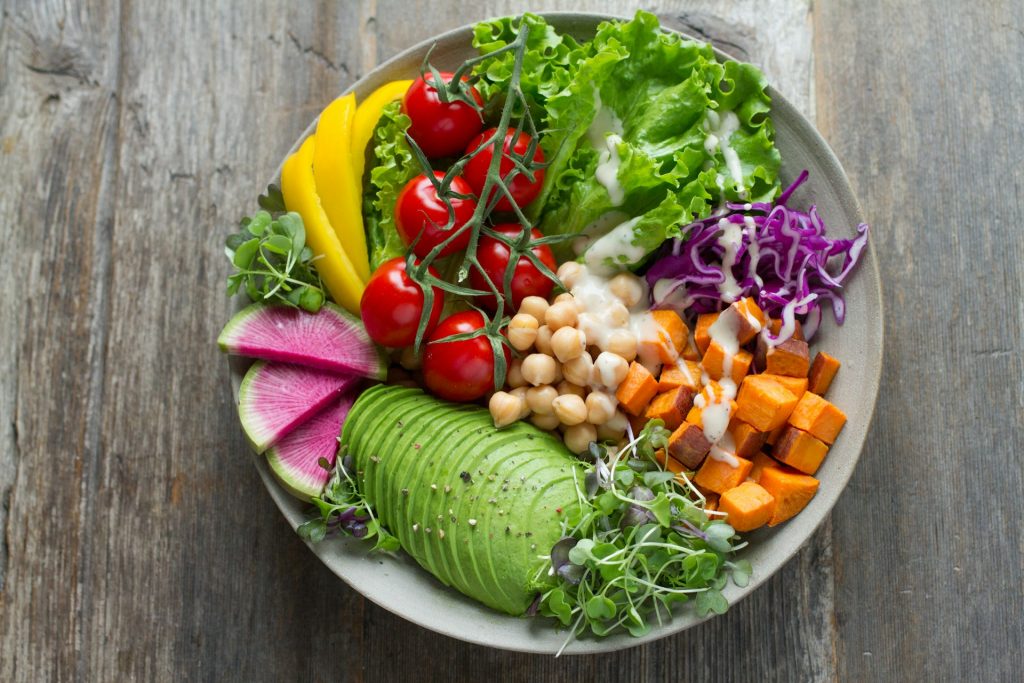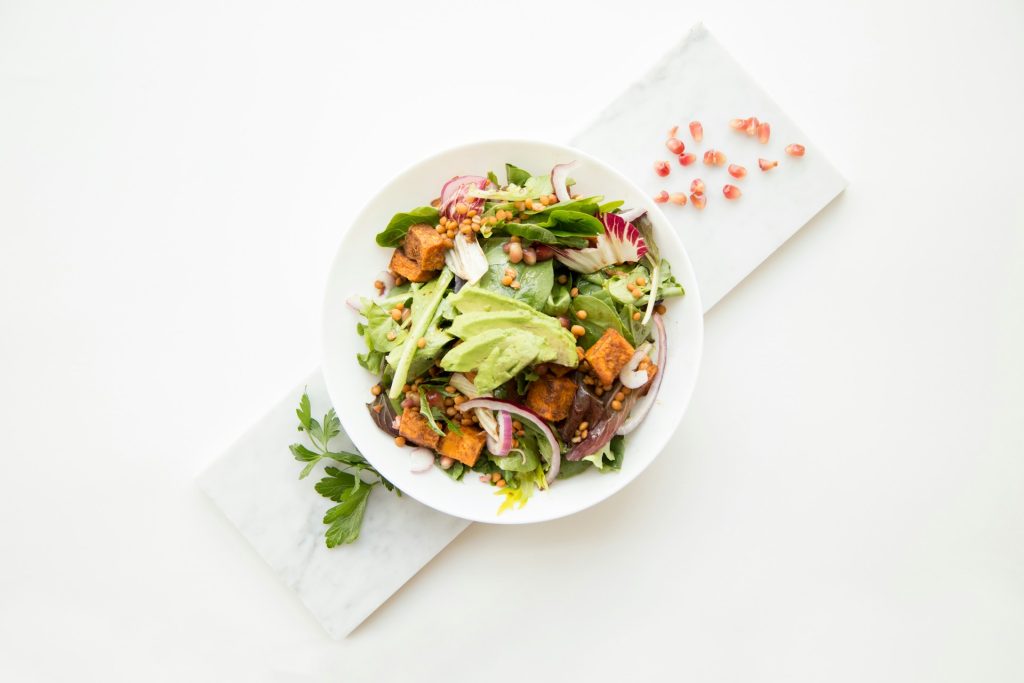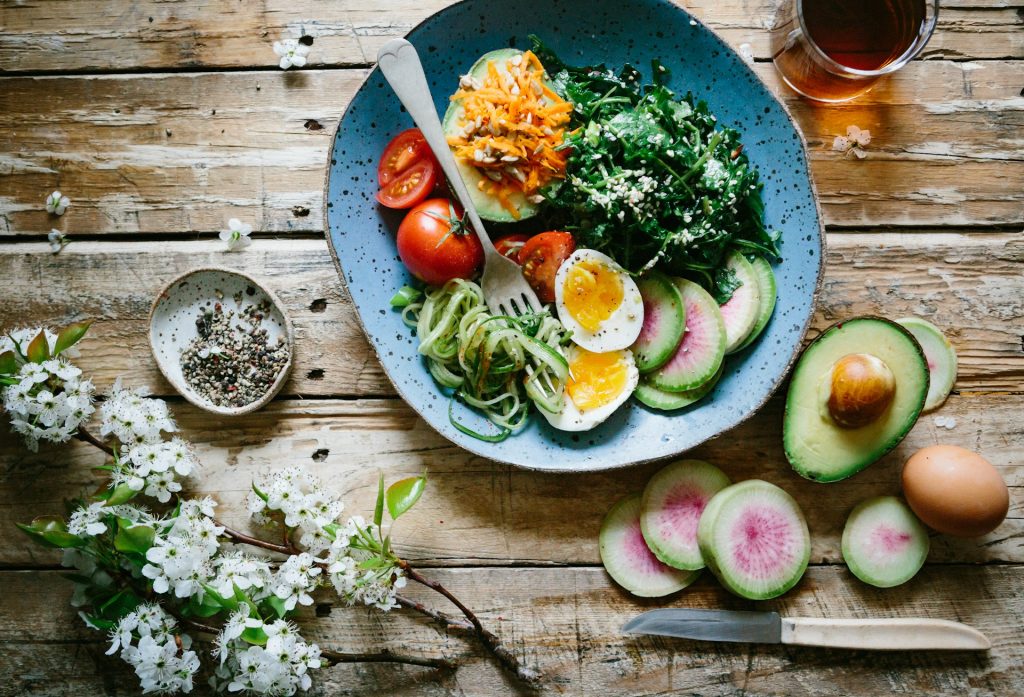Have you ever noticed how your mood shifts after a meal?
Sometimes, after a nourishing bowl of warm soup, I feel grounded and calm. Other times, after rushing through lunch with my laptop open, I feel anxious, restless, and a little hollow. For a long time, I thought it was just being tired or needing coffee. But the more I paid attention, the more I realized my mood wasn’t random. It was deeply connected to what and how I ate.
This story isn’t about calories, clean eating, or the latest wellness trend. It’s about something softer and more real: how food shapes the way we feel, not just physically but emotionally too. It’s also about how our brain and body are constantly communicating.
When Food Became More Than Fuel
I used to think of nutrition in terms of numbers. How many grams of protein? How many calories? I would track, restrict, and repeat. But despite eating what I thought was healthy, I didn’t feel happy. My energy was inconsistent, my thoughts were foggy, and my emotions were on a quiet rollercoaster.
It wasn’t until I started training for endurance sports that I began to see food differently. Running, cycling, and swimming demanded energy, not control. If I under-ate, I couldn’t perform. If I ate too quickly or ignored hunger, my mood would crash halfway through training.
That was when I started learning that nutrition and mood are a conversation, not a checklist.

Dr. Huberman’s Lens: The Brain and Body Connection
Dr. Andrew Huberman, a neuroscientist from Stanford University, often talks about how our gut, brain, and nervous system are deeply linked. In his episode How Foods and Nutrients Control Our Moods, he explains that the vagus nerve acts as a superhighway between the brain and the body. It carries messages from the gut, heart, and other organs to the brain, shaping how we feel throughout the day.
Huberman Insight:
The vagus nerve senses signals from the gut and communicates them to the brain.
As we eat, our nervous system shifts from alertness to calm through changes in serotonin and dopamine.
The brain tracks amino acid balance to determine satiety, not just fullness.
Omega-3s and probiotics support emotional stability by improving neural signaling and gut health.
Understanding this made me realize food is not just fuel. It’s information. Every bite sends a signal to the brain about how safe, calm, and nourished we feel.
Listening to the Body Instead of the Rules
There’s a quiet wisdom in our bodies if we slow down enough to hear it.
When I was stuck in diet culture, I didn’t listen. I ate based on what I thought I should, not what I needed. I read that skipping carbs helped focus, so I powered through mornings on coffee. By 2 p.m. I would crash, irritable and craving sugar.
It wasn’t willpower that was missing. It was balance.
When I began to eat based on how I wanted to feel instead of what I wanted to weigh, everything changed. Food stopped being a rulebook and started becoming a relationship.
Some days that means a hearty meal with rice and fish. Other days it’s a smoothie with banana, oats, and peanut butter. But it always starts with one question:
What does my body need right now to feel calm, clear, and strong?
The Gut and Mood Connection
Modern science has made it clear that the gut is a mood center, not just a digestion system. About 95 percent of serotonin, the neurotransmitter linked to happiness, is produced in the gut. When gut health is off, mood and focus can easily follow.
What Dr. Huberman Adds
In his research, Dr. Huberman explains that while serotonin made in the gut doesn’t directly enter the brain, gut activity influences the nervous system through hormones and metabolites. When your gut is inflamed or unbalanced, it sends distress signals to the brain. This can lead to low energy, anxiety, or mood swings.
He also points out that certain nutrients directly support brain function:
-
Omega-3 fatty acids from fish or flaxseeds help stabilize mood and reduce inflammation.
-
Amino acids like L-tyrosine can influence dopamine and motivation.
-
Probiotics and fermented foods can positively affect emotional resilience by feeding the good bacteria in our gut.
When I started adding more whole foods and omega-rich meals to my diet, I noticed my mental clarity improved. It wasn’t about cutting things out, it was about adding what my brain and gut truly needed.
Eating With Presence
One evening, I sat down to eat after a long day and realized I couldn’t remember what I had for lunch. My mind had been in meetings, my phone buzzing beside my plate. I was eating, but not really there.
So I tried something different. I put my phone away, took a few deep breaths, and noticed the smell, warmth, and texture of my food.
Suddenly, eating felt grounding again, a quiet act of mindfulness in a noisy day.
Dr. Huberman calls this awareness interoception—the ability to feel what’s happening inside your body. When we strengthen this sense, we can recognize when we’re full, calm, or anxious. We begin to understand our body’s signals instead of ignoring them.
Have you ever felt that peaceful satisfaction after a slow dinner with friends? That’s not just social connection, it’s your nervous system relaxing.

Beyond Diet Culture: Relearning Trust
Diet culture made food feel like a test. Good or bad, clean or dirty. It took years for me to unlearn that. No single meal defines your health. What matters is rhythm, pattern, and intention.
When I started asking “How can I nourish myself to feel my best?” instead of “How little can I eat?” my energy stabilized and my emotions evened out.
Here’s what helped me rebuild a healthy relationship with food:
-
Eat regularly instead of skipping meals.
-
Balance macros with protein, complex carbs, and fats.
-
Savor the moment—morning tea, family meals, or post-run smoothies.
-
Forgive slip-ups because food is not a moral issue.
-
Remember joy because food connects us to memories and people.
Dr. Huberman also emphasizes mindset. He shares research showing that how we think about food affects our hormone response. If we eat with guilt, our body produces more stress hormones. If we eat with calmness, digestion improves. What we believe about food truly changes how it affects us.
What Joyful Eating Looks Like
There’s something sacred about sitting down to a meal that feels good for both body and soul.
For me, it’s often simple: a bowl of rice with tofu and sesame or a warm soup with ginger. Comfort doesn’t need to be complicated.
Joyful eating is intuitive. It’s paying attention to what makes you feel alive. Maybe for you it’s crunchy toast with avocado or a cup of tea on a quiet morning.
When we eat with joy, our bodies release dopamine and serotonin naturally. Nourishment feels good, not because it’s earned, but because it’s what our body was waiting for.
Joyful eating = emotional nourishment.
It feeds both body and heart.
The Mood and Food Loop
The connection between food and mood works both ways.
When we’re stressed, we crave comfort food. Those quick bursts of sugar or caffeine give temporary relief but often leave us drained.
Then we feel worse, and the loop continues.
The first step is awareness. Notice what foods make you feel light, focused, or tired. Keep track of patterns.
From my own reflections:
-
Heavy dinners affect my sleep.
-
Green tea helps focus without anxiety.
-
Too much coffee triggers restlessness.
-
Eating slowly, even for 10 minutes, changes everything.
Dr. Huberman calls this behavioral tuning – small experiments with food and habits to notice what works for your unique body. Instead of forcing control, you learn by observing.
The Emotional Side of Eating
We often eat with our emotions. And that’s okay. Food is connection. It’s memory. It’s comfort.
When I’m homesick, I crave my mom’s ginger soup. When I’m celebrating, I want mango sticky rice. These aren’t weaknesses; they’re reminders of belonging.
Instead of judging emotional eating, I’ve learned to ask: what emotion is calling for care right now? Hunger? Stress? Loneliness?
Sometimes, the best nourishment isn’t food. It’s rest, sunlight, or a walk outside. Dr. Huberman often reminds his listeners that our brain sometimes mistakes emotional emptiness for physical hunger. When we pause and listen, we give our body what it truly needs.
From Control to Connection
If I could tell my younger self one thing, it would be this:
Food is not something to conquer. It’s something to connect with.
The journey from diet culture to mindful nourishment is not about perfection. It’s about coming home to your body, your senses, and your intuition.
You don’t need another diet. You need presence.
You don’t need to count calories. You need to count awareness.
You don’t need restriction. You need compassion.
Dr. Huberman’s work helps us understand why this matters biologically. When we eat with calm and connection, our nervous system supports digestion and balance instead of fighting it.
Nourish to Feel, Not Just to Function
These days, when I sit down for a meal, I remind myself that food is energy, but also emotion and care.
It affects how I think, how I show up, and how I love.
Every bite is an invitation to reconnect – to gratitude, to the present, to yourself.

